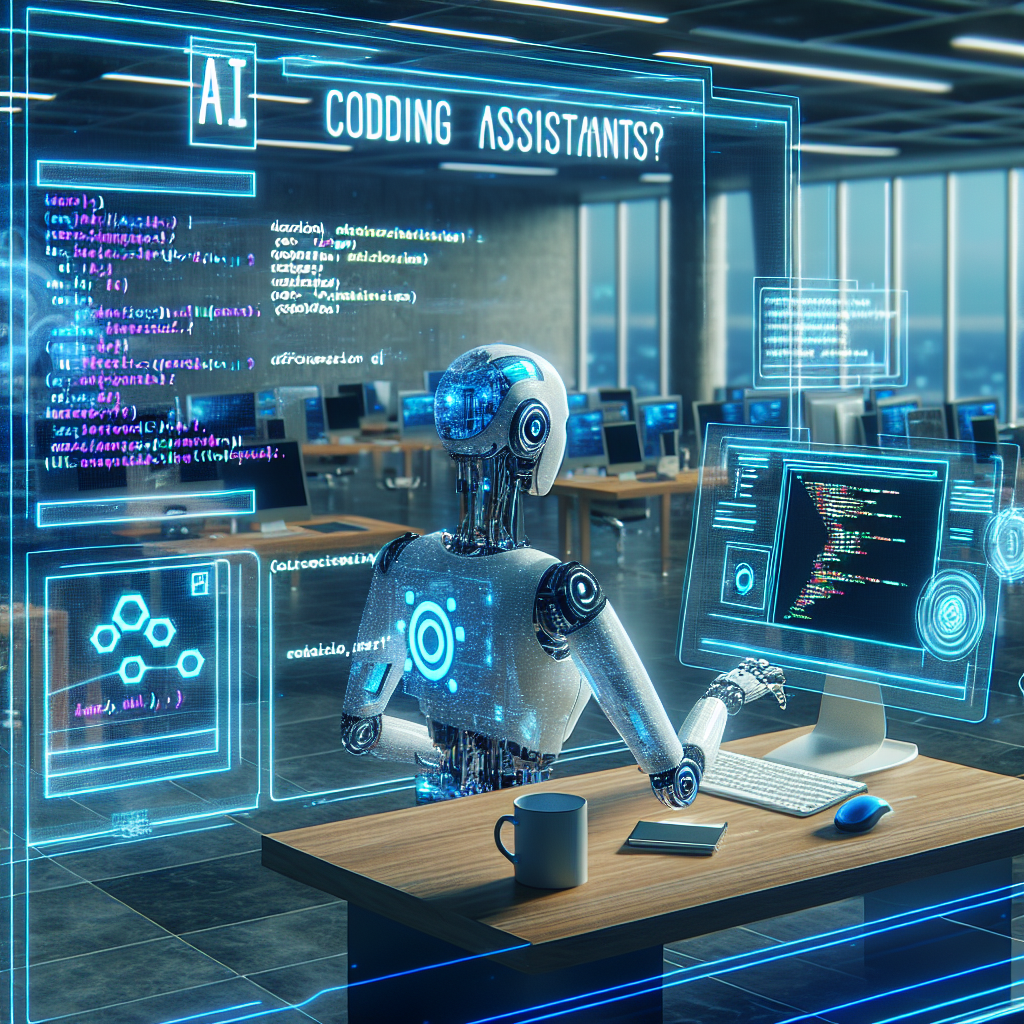Best AI Coding Assistants in 2025: Can AI Replace Developers?
Introduction
In 2025, the landscape of software development has been significantly transformed by the advent of advanced AI coding assistants. These tools, powered by sophisticated machine learning algorithms and extensive data sets, have become integral in automating routine coding tasks, optimizing code efficiency, and even generating code from natural language descriptions. As these AI assistants continue to evolve, a pressing question arises within the tech community: Can AI fully replace human developers? This discussion delves into the capabilities of AI coding assistants in 2025, examining their impact on the software development process and exploring the potential future where AI could stand in for human coders.
Best AI Coding Assistants in 2025: Can AI Replace Developers?
In the rapidly evolving field of technology, AI coding assistants have become indispensable tools for developers around the world. By 2025, these tools have advanced significantly, offering features that streamline the coding process, reduce errors, and even suggest optimizations and new approaches. However, the question remains: Can AI replace developers?
AI coding assistants, such as GitHub Copilot, IntelliCode by Microsoft, and Amazon CodeWhisperer, have been at the forefront of this technological revolution. These platforms utilize machine learning algorithms to analyze vast amounts of code and provide suggestions that can help even novice programmers write more efficient and error-free code. They are designed to understand the context of the project and generate code snippets that fit seamlessly into the larger body of work. This capability not only speeds up the development process but also enhances the learning curve for emerging developers.
Despite these advancements, the role of AI in coding extends beyond mere suggestion engines. AI systems are now capable of writing entire sections of code, testing them, and even debugging existing projects. This level of automation could suggest a future where human coders are no longer necessary. However, this is not the full picture. While AI can handle routine and repetitive tasks effectively, the creative and innovative aspects of software development still require the human touch. Developers bring a level of strategic thinking and problem-solving ability that AI, as of 2025, cannot fully replicate.
Moreover, the integration of AI into coding raises important ethical and practical considerations. For instance, the reliance on AI for coding tasks could lead to a homogenization of problem-solving approaches, potentially stifling innovation. There’s also the issue of job displacement; as AI tools become more capable, companies might opt for these cost-effective solutions over human employees. However, rather than replacing developers, AI coding assistants are more likely to shift the nature of coding jobs. Developers might transition into roles that require overseeing AI coding efforts, ensuring that the AI adheres to ethical guidelines, and engaging in more complex problem-solving activities.
Furthermore, the collaboration between human developers and AI tools can lead to unprecedented levels of productivity and innovation. By automating the more mundane aspects of coding, developers can focus on more strategic tasks such as architecture design, user experience, and functionality improvements. This synergy can potentially lead to the development of more sophisticated and user-centric applications.
In conclusion, while AI coding assistants in 2025 are more advanced and capable than ever, they are not in a position to replace human developers entirely. Instead, they serve as powerful tools that augment the capabilities of human coders. The future of software development is likely to be characterized by a collaborative relationship between humans and AI, where each plays to their strengths to achieve greater efficiency and innovation in the field of technology. As we move forward, it will be crucial for the tech community to navigate the challenges and opportunities presented by AI in coding, ensuring a balanced approach that maximizes benefits while addressing potential drawbacks.
Conclusion
In 2025, the best AI coding assistants significantly enhance developer productivity and efficiency, but they do not replace developers entirely. These AI tools excel in automating routine tasks, debugging, and providing code suggestions, which allows developers to focus on more complex and creative aspects of software development. However, critical thinking, problem-solving, and the nuanced understanding of user needs and business goals remain distinctly human skills that are essential in software development. Thus, while AI coding assistants are invaluable tools that transform how developers work, they complement rather than replace the role of human developers.



